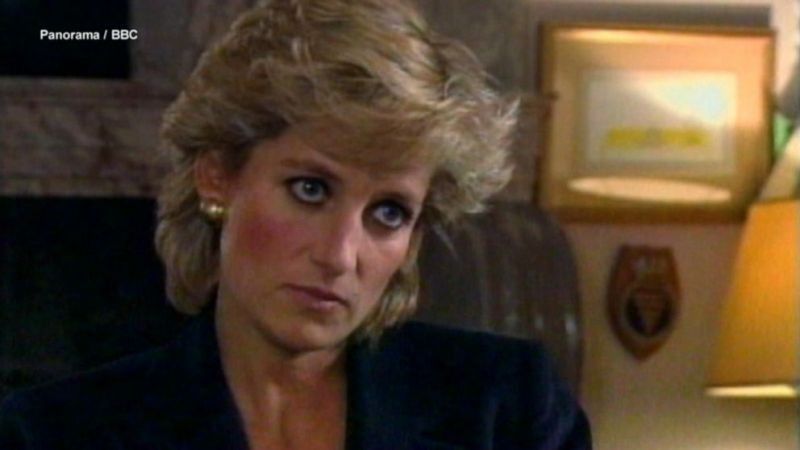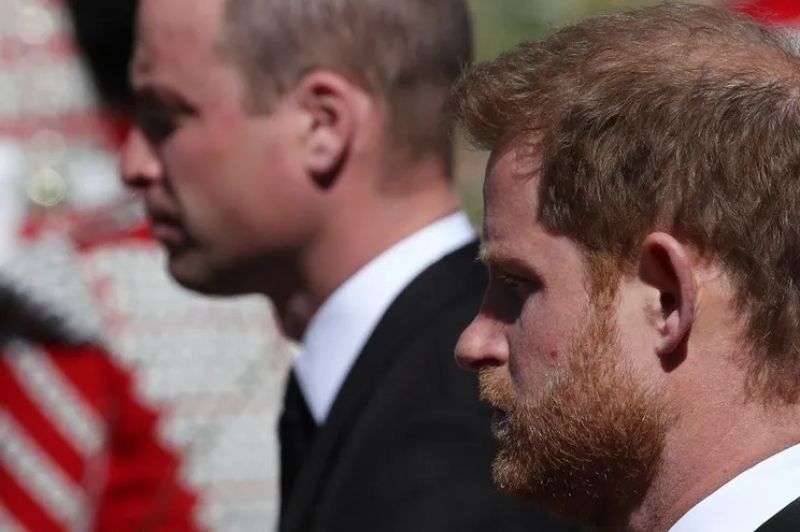William and Harry hit out at BBC over 'deceitful' Diana 1995 interview

LONDON, United Kingdom — Princes William and Harry on Thursday hit out at the BBC and journalist Martin Bashir over "the deceitful way" Bashir obtained his explosive TV interview with Princess Diana, their late mother, in which she detailed her troubled marriage to Prince Charles.
Their stinging criticism came hours after an independent inquiry found Bashir had used falsified documents to get his sensational 1995 sit-down with Diana, and that BBC leaders had failed to adequately probe how he had arranged it.
William said the deceitful way the interview was obtained had "substantially influenced" what his mother said on the air, and made "a major contribution" to the demise of his parents’ relationship.
He added that the BBC's oversight failures had "contributed significantly to her fear, paranoia and isolation" in her final years.
Diana and Charles, the heir to the British throne, formally divorced in 1996. She died aged 36 in a high-speed car crash while being chased by paparazzi photographers in Paris the following year.
"It is my firm view that this Panorama programme holds no legitimacy and should never be aired again," William -- second in line to the throne -- added in a lengthy statement read in-person from Kensington Palace.
"It effectively established a false narrative which, for over a quarter of a century, has been commercialised by the BBC and others," he said, noting the narrative now "needs to be addressed".
In his own release, William's younger brother Harry said the enquiry report was "the first step towards justice and truth" but that the deceptive practices exposed were still widespread today -- and had played a part in his mother's death.

"The ripple effect of a culture of exploitation and unethical practices ultimately took her life," he added.
Harry's comments echoed those of Diana's brother Charles Spencer, who earlier blamed the fallout from the 1995 interview for contributing to her death nearly two years later.
"She didn't know who to trust and in the end, when she died two years later, she was without any form of real protection," Spencer said.
'Flawed'
Retired senior judge John Dyson's report said Bashir commissioned faked bank statements that falsely suggested some of Diana's closest aides were being paid by the security services to keep tabs on her.
Bashir then showed them to Spencer in a succesful bid to convince him to arrange a meeting between himself and Diana and earn her trust to secure the interview.
"By behaving as described... Mr Bashir acted inappropriately and in serious breach" of the corporation's own editorial guidelines on "straight dealing", Dyson added.
Questions have long been asked about how Bashir convinced Diana on the BBC's flagship "Panorama" programme, which was watched by a record 22.8 million people and won a string of television awards.
In it, she famously said "there were three people" in her marriage -- her, Charles and his long-time mistress and now wife, Camilla Parker-Bowles -- and also admitted adultery.
Bashir, now 58, was little-known at the time but went on to have a high-profile career on US television networks, and interviewed stars such as Michael Jackson.
He returned to work for the corporation as religion editor until he stepped down just last week, citing ill health, hours before Dyson's report was submitted to BBC bosses.
A 1996 internal inquiry by future BBC chief Tony Hall and another senior figure, Anne Sloman, cleared Bashir of wrongdoing.
But Dyson called that probe "flawed and woefully ineffective".
It failed to ask Spencer for his version of events, Dyson noted, lambasting it for failing to scrutinise Bashir's actions properly.
"If they had been able to test Mr Bashir's account... it is very unlikely that they would have believed him and concluded that he was an 'honest and an honourable man'," he wrote.
'Stupid thing'
Hall, now chair of the board of trustees at Britain's National Gallery, admitted that the probe "fell well short of what was required", and said he was "wrong to give Martin Bashir the benefit of the doubt".
Culture Secretary Oliver Dowden said the government would reflect on Dyson's findings and consider whether "further governance reforms" were needed at the BBC, adding "this can never happen again".
BBC director-general Tim Davie, who took the helm last September, said the corporation accepted the report completely and offered a "full and unconditional apology", noting it had better procedures in place now.
"The BBC should have made greater effort to get to the bottom of what happened at the time and been more transparent about what it knew," he added.
The broadcaster said it was handing back the awards it won for the interview.
Bashir also apologised, saying the faking of the bank statements was "a stupid thing do and was an action I deeply regret".
But he maintained it had "no bearing whatsoever on the personal choice by Princess Diana to take part", and he was still "immensely proud" of the interview.
Davie too noted the princess was "keen on the idea of an interview with the BBC". Her estranged husband had spoken to commercial channel ITV in 1994, and also admitted adultery.
John Birt, BBC director-general in 1995, said in a statement: "We now know that the BBC harboured a rogue reporter".
- Latest
- Trending


































